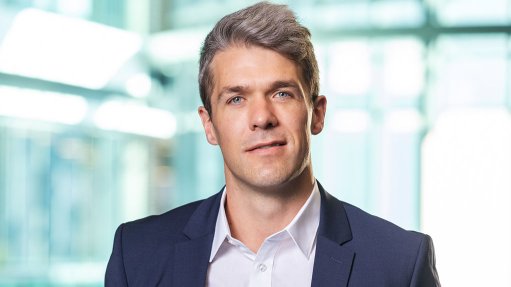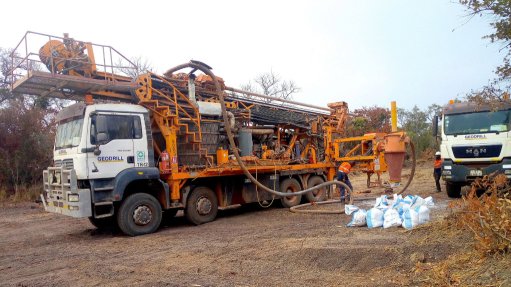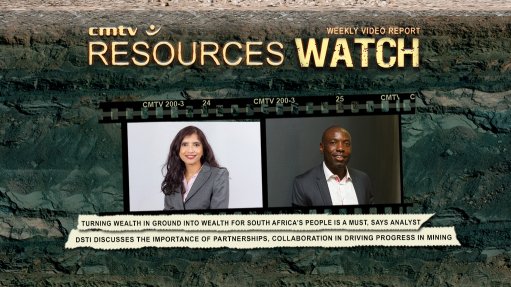Sasol, Netherlands university collaborate to develop atmospheric CO2 removal technologies
The Centre for Energy Innovation of the University of Twente (UT) in Enschede, Netherlands, and the Research & Technology (R&T) arm of South Africa’s Sasol have agreed to collaborate on the development of technologies for the removal of atmospheric carbon dioxide (CO2).
This will be possible partly owing to Sasol R&T’s regional office in Enschede.
To realise the ambitions of the Paris Agreement to limit global temperature increases to 1.5 °C above preindustrial levels, there is a need to reduce CO2 emissions, as well as reduce atmospheric CO2, since the gas is considered to be the main driver of climate change.
The UT is developing a mission-driven programme that focuses on negative emission technologies. These technologies recover CO2 that is present in the atmosphere as a result of past emission.
The science and technology under development seeks rapid translation towards real-life application.
“We develop energy efficient technology for the removal of CO2 from the atmosphere. Part of it will be converted into products with a very long lifetime to secure CO2 sequestration.
“Another part will be used to convert CO2 into circular chemicals, fuels and polymers. We believe the atmosphere is the carbon source of the post fossil era,” UT Centre for Energy Innovation director Jos Keurentjes said on October 6.
Sasol will become an active partner of the programme, providing guidance to projects in the programme by performing technology and engineering desk studies and pilot testing.
“Sasol is committed to its ambitious greenhouse-gas reduction roadmap to reduce its environmental footprint. The cooperation with the Centre of Energy Innovation will help us in realising our goals and strengthen the development of technology for sustainable chemicals production,” Sasol R&T senior VP Thembakazi Mali explained.
The application domain resides in reducing industrial emissions, sustainable CO2 use and storage, as well as in negative emission technologies by direct air capture.
The partners believe their collaboration will enable faster innovation than using a sequential approach, thereby providing a strong basis for bringing climate ambitions within reach.
Article Enquiry
Email Article
Save Article
Feedback
To advertise email advertising@creamermedia.co.za or click here
Press Office
Announcements
What's On
Subscribe to improve your user experience...
Option 1 (equivalent of R125 a month):
Receive a weekly copy of Creamer Media's Engineering News & Mining Weekly magazine
(print copy for those in South Africa and e-magazine for those outside of South Africa)
Receive daily email newsletters
Access to full search results
Access archive of magazine back copies
Access to Projects in Progress
Access to ONE Research Report of your choice in PDF format
Option 2 (equivalent of R375 a month):
All benefits from Option 1
PLUS
Access to Creamer Media's Research Channel Africa for ALL Research Reports, in PDF format, on various industrial and mining sectors
including Electricity; Water; Energy Transition; Hydrogen; Roads, Rail and Ports; Coal; Gold; Platinum; Battery Metals; etc.
Already a subscriber?
Forgotten your password?
Receive weekly copy of Creamer Media's Engineering News & Mining Weekly magazine (print copy for those in South Africa and e-magazine for those outside of South Africa)
➕
Recieve daily email newsletters
➕
Access to full search results
➕
Access archive of magazine back copies
➕
Access to Projects in Progress
➕
Access to ONE Research Report of your choice in PDF format
RESEARCH CHANNEL AFRICA
R4500 (equivalent of R375 a month)
SUBSCRIBEAll benefits from Option 1
➕
Access to Creamer Media's Research Channel Africa for ALL Research Reports on various industrial and mining sectors, in PDF format, including on:
Electricity
➕
Water
➕
Energy Transition
➕
Hydrogen
➕
Roads, Rail and Ports
➕
Coal
➕
Gold
➕
Platinum
➕
Battery Metals
➕
etc.
Receive all benefits from Option 1 or Option 2 delivered to numerous people at your company
➕
Multiple User names and Passwords for simultaneous log-ins
➕
Intranet integration access to all in your organisation


















